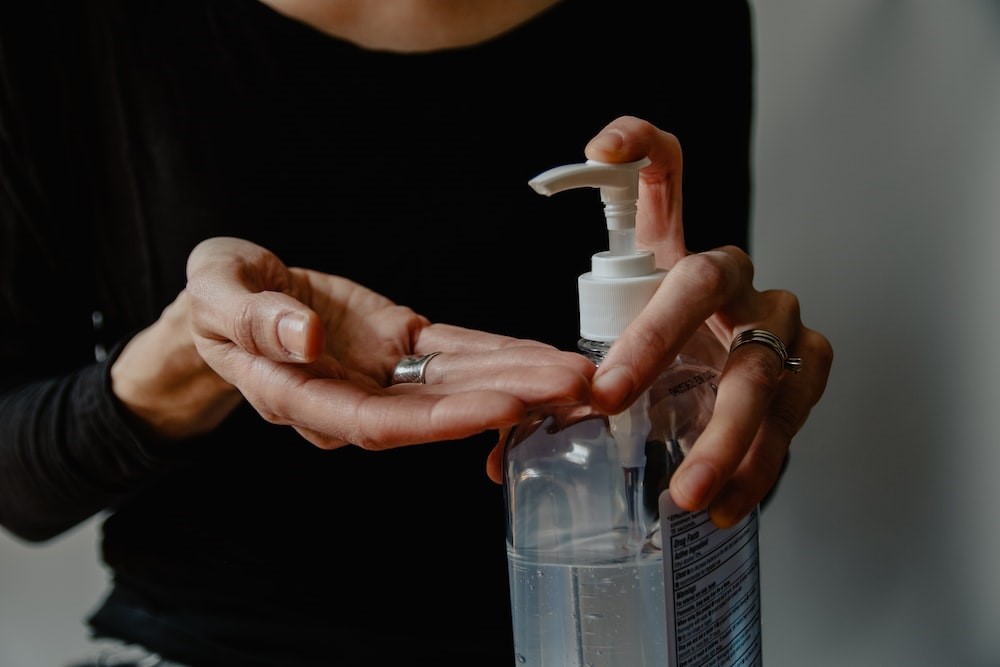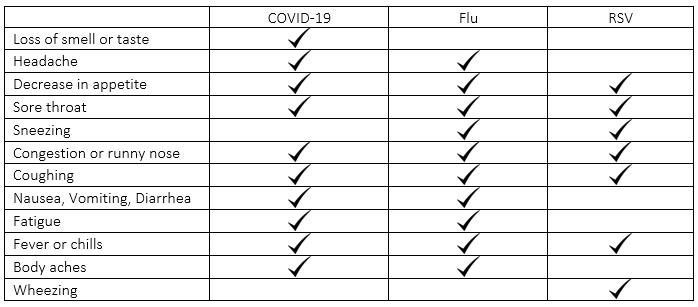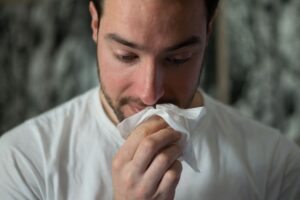Respiratory Triple Threat: Flu, RSV, Covid-19

With respiratory viruses surging, it is more important than ever to take a look at each virus individually and how best to protect ourselves during this season. The increase in cases of these three viruses is actually being referred to as a “tripledemic.”
The “not-so-fun” facts:
- The flu hit hard and early this year; it was reported in November 2022 that hospitalizations for the flu were already at their highest level in a decade.
- Hospitalizations for RSV were already higher in December 2022 than in the previous four seasons.
- You can get more than one virus at the same time, meaning that it is possible to test positive for both the flu and COVID-19, for example.
- While there is a long list of factors, it is important to know that adults 65 years and older are at a higher risk of developing serious complications from these respiratory viruses.
- Complications of these infections can include pneumonia, worsening of COPD or asthma, or worsening of congestive heart failure.
How do we tell these viruses apart and when should you go to the doctor?
If you suspect you may be infected or know that you have been around someone who recently tested positive, it is a good idea to follow up with your doctor. There are many tests available that can rapidly diagnose these viruses. If you are having trouble breathing, have a severe sore throat or have a productive cough with green or yellow mucus, you should seek medical attention right away. The flu, COVID-19 and RSV all share similar symptoms, though they do vary slightly.

Now, how can we help to prevent these viruses from spreading?
From a long-term-care pharmacist’s perspective, I will focus on primarily nursing home residents and healthcare personnel. The CDC does encourage mask wearing for high-risk populations. We have seen that masking is effective in preventing the spread of the flu, as flu levels were almost nonexistent for the past two years due to masking and social distancing requirements for COVID-19. It is also important to implement standard precautionary measures such as handwashing, covering your mouth and nose when sneezing or coughing, and avoiding touching your eyes, nose and mouth. Another good habit includes disinfecting frequently touched surfaces at home or work. As always, good health practices will help to prevent illness: get plenty of sleep, manage stress, follow a healthy diet, and exercise to your abilities. Perhaps the most important thing to remember- stay home when you are sick! This will help to prevent the spread of your illness to others around you. All eligible people should also consider vaccination: the COVID-19 booster dose and the annual influenza vaccine. It is not too late to protect yourself!
Written by: Megan Holland, PharmD

For more info on flu vaccines: https://corumpharmacy.com/flu-vaccines/
For more info on COVID-19: https://corumpharmacy.com/vaccination-and-covid-19-death-rates-in-nursing-homes/
Sources:
- https://www.cnbc.com/2022/11/28/flu-hospitalizations-increase-nearly-30percent-as-us-enters-holiday-season.html
- https://www.cdc.gov/flu/prevent/actions-prevent-flu.htm
- https://www.cdc.gov/rsv/high-risk/older-adults.html
- https://www.cnn.com/2022/12/22/health/flu-rsv-us-cases-tracker-dg/index.html


